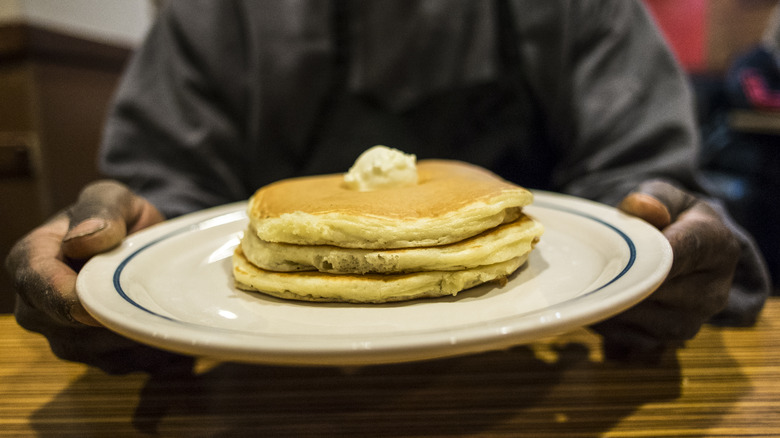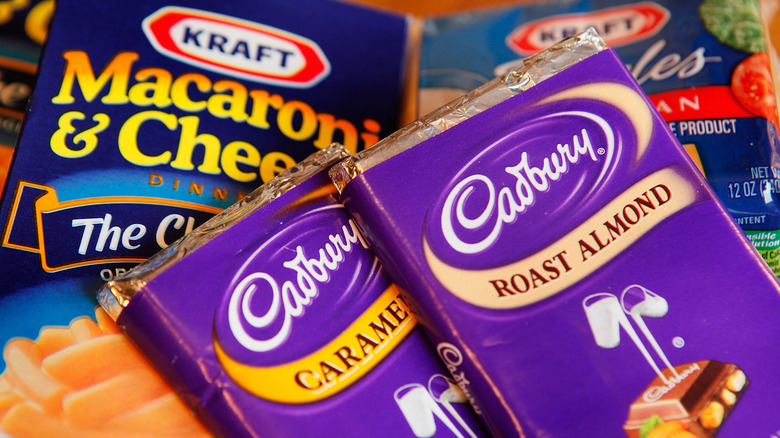What Classifies A Dish As 'Comfort Food'?
The times are changing and not in the most optimal way regarding our diets. The high-stress years since the start of the COVID-19 pandemic have seen increased consumption of alcohol, cigarettes, and food (via National Library of Medicine). The foods in question tend to be high in fats and sugars, such as fried fare, candy, pastries, and pizza. They hold a strange reputation — simultaneously scorned as unhealthy vices and embraced and beloved as comfort foods.
They have consoled us in these trying times, but they have also spurred on widespread weight gain throughout America in 2020, according to the City University of New York. Why is it that our comfort foods always seem to wreak havoc on our bodies? Why can't we find the emotional support we need in a bowl of kale or quinoa?
Comfort food takes many forms around the world. The French have cassoulet, a hearty stew containing beans, duck confit, and sausage; Poland has rich, potato-stuffed pierogi; and South Africa has melkkos, a sweet porridge made with generous amounts of butter and cinnamon. No matter what form it takes, comfort foods tend to be warm and hearty, and the comforting aspects of that should be readily apparent, especially when you cast your thoughts back to the days before heated homes. But it turns out the unhealthy aspect of comfort food are just as important to its soothing powers, for more complex reasons.
Comfort foods are typically high in sugar and fat, which reduce stress
Psychology Today references emotional eating as a pattern of behavior in which people eat larger amounts of unhealthy food, when they are coping with emotional distress. Who among us, in all honesty, can't relate? There are biochemical reasons that we crave high-fat and high-sugar foods when we are sad, angry, or stressed out, and they can be linked to our primitive ancestors.
Early humans faced far more threatening stressors in their lives. Responding to those stressors required powerful reserves of energy, so people developed an instinctive craving for energy-dense foods (via UT Physicians). Today, we have more access to food and fewer physical energy needs than our ancient predecessors, but the cravings remain hardwired into our brains.
Psychology Today also links comfort foods to the powerful forces of nostalgia and our instinctive need to belong. For most of us, comfort food evokes memories of family and friends gathered in a familiar and secure environment. Those are the very things we crave in times of stress. The fact that comfort foods often appear on the table on holidays, only sweetens the memories they evoke.
Comfort foods provide an emotional boost, but they shouldn't be seen as a sustainable solution to any problems, as Psychology Today notes that fat, sugar, and salt stimulate the brain's reward system — the same system active in drug addiction.

